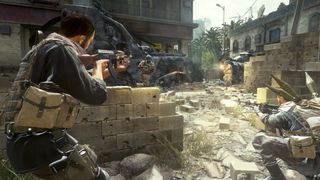

Tower defense games require a player to build towers in order to contain swarms of enemies that follow a pre-determined route. The earliest 4X games were turn-based, and many still are, but real-time 4X games are becoming more common.

Most games also provide several different routes to victory. Though the specific gameplay elements vary from game to game, most games involve some combination of economic, technological, and military development. 4X stands for "explore, expand, exploit, and exterminate." In these games, players control an empire, and gameplay often spans hundreds or thousands of years of in-game time. "4X" was a term first used by Alan Emrich to describe "Master of Orion," a strategy game he helped design.

There are several other subgenres of strategy games as well, including 4X, Tower Defense, War Simulation, and Artillery games. These games are almost exclusively turn-based, and feature combat on a map, usually with different types of terrain. They are descended from traditional table-top miniature wargames like Warhammer and boardgames like Risk and Axis & Allies. War games are a subgenre of strategy games. Moreover, there are often more ways to win besides combat. Since turn-based games generally take longer than RTS games, their goals and challenges are often more long-term. These games usually impose a movement and/or action limit on units, so that players may only move or act a certain number of times with each unit per turn. Turn-based strategy games, not surprisingly, require players to take turns instead of playing simultaneously. According to the definition of tactics, most RTS games should really be called Real Time Tactics games, though long-term strategy is sometimes required. In order to create buildings and units, a player must mine resources. In RTS games, players must build and defend a base while attacking and destroying an opponent's base and all his or her units. Real time strategy (RTS) games allow players to make decisions, act, and move simultaneously. Most strategy games incorporate elements of both strategy and tactics, but some only use one or the other. Tactics refers specifically to how a player uses his troops in battle. Strategy refers to a player's long-term goals, the types of troops the player uses, and the surrounding terrain. Nearly all strategy games involve the use of individual pieces known as "units." These units are divided into different types that are graphically distinct from one another, and often possess different strengths, weaknesses, and special abilities. These games can be categorized based on whether they use strategy, tactics or some mix of the two, and whether they are real-time or turn-based. Challenges usually take the form of objectives that must be reached, or enemies that must be defeated. Strategy games require player to think and plan ahead in order to overcome challenges.


 0 kommentar(er)
0 kommentar(er)
